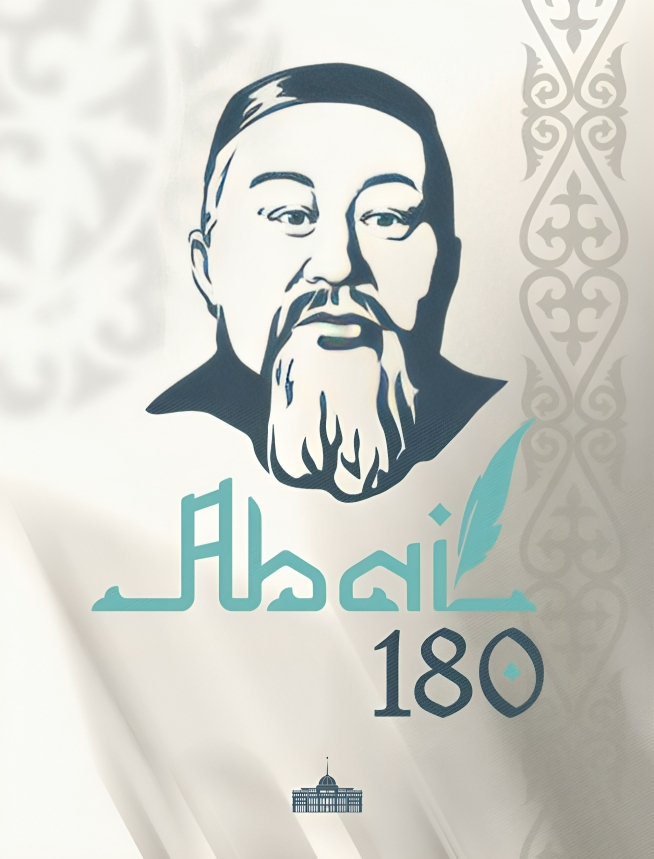
Kazakhstan
Wisdom Without Borders: Abai’s Legacy in a Global Kazakhstan
Wisdom Without Borders: Abai's Legacy in a Global Kazakhstan

On August 10th, Kazakhstan marked the 180th birth anniversary of Abai Qunanbaiuly, the nation's most revered poet, philosopher, and thinker whose ideas remain strikingly relevant today. Born in 1845, Abai is a central figure in Kazakhstan's cultural and intellectual history. His contributions laid the groundwork for modern Kazakh identity by championing enlightenment, moral integrity, and national consciousness. His seminal work, the "Book of Words," widely translated into numerous foreign languages, underscores the importance of education and ethical leadership, values that remain deeply relevant in Kazakhstan today..
Abai's influence extends beyond literature and philosophy: he shaped the moral framework of Kazakhstan's civic culture. His advocacy for embracing global knowledge while preserving national identity reflects the balance Kazakhstan seeks in its domestic and foreign policies. His call for intercultural dialogue and mutual respect aligns with the country's efforts to foster a cohesive yet diverse society – an approach vital for the conduct of diplomacy in an increasingly fragmented world.
In recent years, Kazakhstan's foreign policy has drawn heavily on Abai's legacy to promote its image as a peace-oriented, multi-vector state. By adopting Abai's ethos of wisdom and dialogue, Kazakhstan positions itself as a bridge between East and West, fostering cooperation across cultural and geopolitical divides. His teachings inspire Kazakhstan's active role in mediating conflicts, advancing nuclear non-proliferation, and encouraging regional integration within Central Asia—initiatives emphasising diplomacy over confrontation.
Abai's emphasis on education and enlightenment is reflected in Kazakhstan's investment in human capital and soft power diplomacy. Programs such as the Bolashak scholarship and efforts to promote the Kazakh language and culture abroad mirror his belief of nurturing a globally aware yet culturally rooted citizenry. Hereby, Kazakhstan advances Abai's vision of an enlightened society grounded in knowledge and moral responsibility.
More than a national icon, Abai serves as a philosophical compass guiding Kazakhstan's modern identity and international engagement. His teachings stress that a nation's strength depends on the quality of its people's minds and the integrity of their actions. Education, meritocracy, and moral leadership are the pillars of resilience he advocated: principles deeply embedded in Kazakhstan's governance and societal development.
President Kassym-Jomart Tokayev frequently cites Abai's teachings in discussions on justice, unity, and education reform. The concept of a "Listening State," which priorities serving citizens with integrity, echoes Abai's vision of leadership. President Tokayev's description of Abai as "the spiritual compass of our nation" captures how the poet's legacy continues to influence Kazakhstan's domestic resilience and diplomatic maturity.
Abai's call for openness to global knowledge coupled with cultural preservation parallels Kazakhstan's current international posture. His "Book of Words" advocates thoughtful dialogue and moral responsibility, principles evident in Kazakhstan's dedication to multilateralism and interfaith cooperation. The Congress of Leaders of World and Traditional Religions, held in Astana every three years since 2003, exemplifies this spirit by fostering dialogue among religious and political leaders worldwide, embodying Abai's ideals in a contemporary setting.
Kazakhstan's role in promoting regional peace and security further reflects Abai's appeal to ethical leadership. The Conference on Interaction and Confidence-Building Measures in Asia (CICA), initiated by Kazakhstan in 1992, promotes cooperation based on trust and shared security. Kazakhstan's mediation in conflicts, including hosting peace talks between Armenia and Azerbaijan, underscores its commitment to constructive diplomacy.
In essence, Abai remains not only a national icon but also a compass for Kazakhstan's modern identity and its engagement with the world. His legacy transcends literature and philosophy, offering timeless insights that continue to resonate today. As Kazakhstan navigates the complexities of the 21st century and seeks to define its role in an increasingly volatile global order, Abai's teachings provide both a source of historical pride and enduring wisdom.
Alberto Turkstra, Project Director, Diplomatic World

